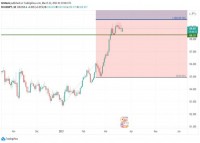|
Opinion: Is MF Global the Final Nail in a Long Running Fight for Derivative Market Integrity?By Mark MelinThe regulated derivates industry is at its lowest point in history. The customer segregated account, once regarded as among the most secure in the financial services industry, is now relegated to be used by others for deposits on OTC SWAP transactions. Current Commodity Futures Trading Commission (CFTC) Chairman Gary Gensler has been deeply involved in the most recent MF Global debacle, but his little reported actions to dismantle derivative market protections have a long history. It was Mr. Gensler who, in 1998 when a proud member of what was known as "The Working Group," executed a scheme with Larry Summers and Robert Rubin that first humiliated then CFTC Chairwoman Brooksley Born and later forced her resignation. Ms. Born's offense was attempting to investigate the non-transparent OTC derivatives that ultimately imploded in 2008. With Chairman Gensler's involvement, regulation in place that worked for decades was cast away as "outmoded" or "depression era." This ushered in new and accommodating legislation created by the denizens of the revolving doors between Wall Street and K Street. These rule changes will most likely come into play when improperly designed and generally unregulated OTC SWAP transactions, strewn across the European Union and in the US, implode in a global debt crisis. More concrete, however, one needs to look no further than MF Global to see evidence of Chairman Gensler's handiwork. Customers of Futures Commission Merchants (FCMs), for example, formerly protected client funds by rigid rules of segregation, are now for the first time ever creditors in bankruptcy courts under new legal twists which have Chairman Gensler's fingerprints all over. Evidence suggests Chairman Gensler should be held accountable for the decisions that damaged the regulated derivatives industry more than any other event in history. But how and why did this happen? What is the longer-term story? Making the World Safe For SWAPS Upon taking his current position at the CFTC on May 26, 2009, Chairman Gensler stated objective was to regulate OTC SWAPs that had recently imploded in 2008. The new way is towards SWAP transactions instead of the true and open exchange model, which operated robustly for many decades -- through depressions, wars, financial panics and the chaos of 2008. But the groundwork for this was laid much earlier. The first sign of this change was in 1999 when Gary Gensler, after his "success" with Brooksley Born, was appointed by Robert Rubin to Undersecretary for Domestic Finance. His job was to promote that regulation of off exchange derivatives would remain free from regulatory oversight. Legislation was created that is now called the "Enron Loopholes." At the time Chairman Gensler also worked on and lobbied Congress for Commodity Futures Modernization Act, which was written to allow, among other things, greater brokerage access to customer funds for things like foreign sovereign debt. Chairman Gensler, who was a key player in creating and promoting loopholes that brought about Enron and the 2008 mortgage banking collapse, now stands in the middle of an MF Global criminal cover-up. It is noteworthy that Chairman Gensler's prepared statement at the first hearing on MF Global said nothing at all about MF Global and much about his work on swaps regulation. So consider that as the industry moves to a swaps-based industry instead of the use of futures for hedging and risk management, transaction costs will likely increase for all market participants with lessoned liquidity. As financial swaps become the dominant instrument used to trade commodity markets, it is also possible that the Senate Agricultural Committee, which oversees the CFTC, will eventually lose their mandate for oversight this federal agency. The Commodity markets and the CFTC (possibly merged into the SEC) could then fall under the Congressional and Senate Finance Committee, which are recognized in books such as Neil Barofsky's book Bailout to be fully controlled by the entrenched financial lobby and special interests. The same groups that have overseen the greatest consolidation of financial power and financial crimes against the U.S. public in the recent decades. Wouldn't this development signal the complete control of regulators by a group that, some might say, have been involved in damaging the integrity of US financial system? The path toward SWAPs leads financial services in a direction that will likely have less fee competition, lower liquidity and fewer counterparties. The commodities markets were built and shaped over time by regulatory professionals who understood basic market principals unique to commodities. This has been dismantled by the likes of Chairman Gensler. Today, the rulemaking process has been subsumed by SWAPs dealers with a government failure guarantee. In 2008 the warnings Ms. Born had predicted in 1998 came into the public view, as the overleveraged crash of 2008 was just the start. During this time the commodity industry was a shining star. Markets held up under significant stress and the primary investment to arise out of the ashes was managed futures, the ignored asset class that had a long history of posting positive performance when all else was weak. This industry cannot be damaged at the time when uncorrelated investments are needed most. |
|
This article was published in Opalesque Futures Intelligence.
|





 RSS
RSS









